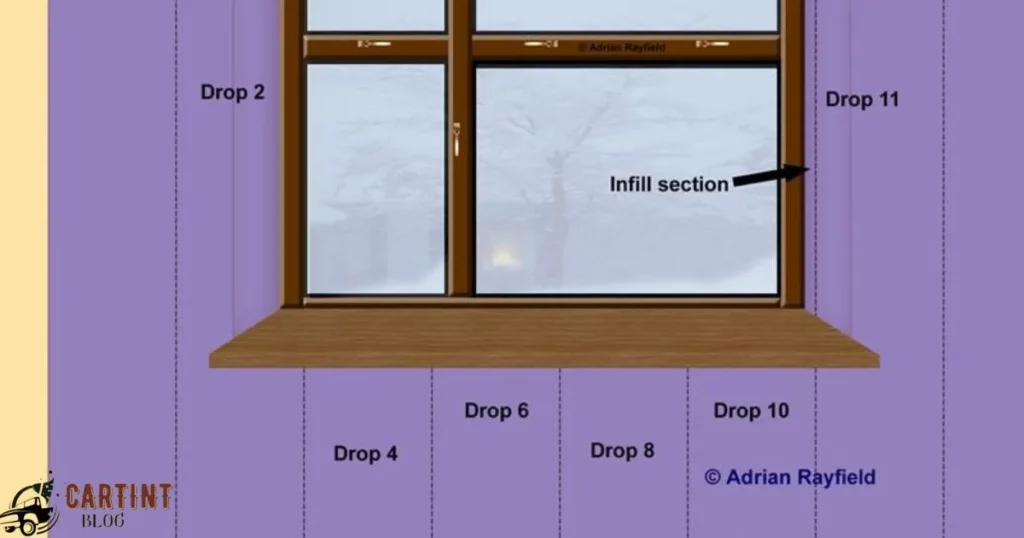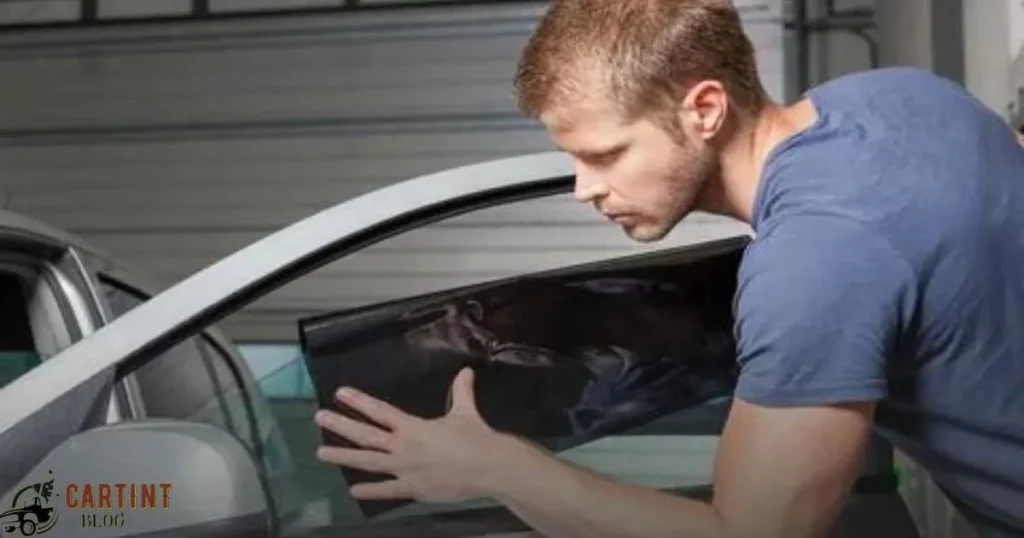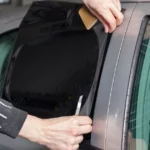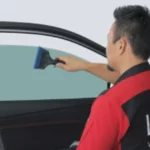Tipping a window tinter is not mandatory. It’s appreciated as a gesture of gratitude for exceptional service. Consider tipping around 10-15% of the total cost or $10-$20 per window. Tipping depends on your satisfaction and willingness to show appreciation.
Wondering about tipping etiquette for window tinting services the burning question on many minds is: do you tip a window tinter? If you’re seeking clarity on this customary practice, let’s delve into the nuances of tipping when it comes to window tint technicians.
When it comes to tipping a window tinter, it’s a gesture of appreciation, not a requirement. Stick around to learn more about this custom and how it might apply to your tinting experience.Stay with us to uncover whether tipping is customary, how much to tip, and factors to weigh in when deciding.
Do You Tip Window Tint Technicians?
Tipping window tint technicians is a gesture of appreciation for their work. It’s not mandatory, but it’s a thoughtful way to acknowledge exceptional service. When considering tipping, you might factor in the quality of the job, the technician’s professionalism, and your overall satisfaction with the service provided.
If the service exceeded your expectations or if the technician demonstrated exceptional skill and courtesy, offering a tip can be a way to show gratitude for their effort and dedication. Tipping is voluntary and should reflect your appreciation for the quality of workmanship and service received.
How Much Do Tinters Earn?
Window tinters typically earn based on factors like experience, location, and the complexity of the job. On average, their annual earnings range from $25,000 to $50,000 in the United States. Experienced tinters or those in high-demand areas might earn more, while beginners might start at a lower wage.
The income of tinters can also vary depending on whether they work for a company or run their own business. Those with entrepreneurial ventures often have higher earning potential but also manage their own expenses and clientele. A tinter’s income reflects their skill level, demand, and the market they serve.
How Much Will a Window Tint Cost?
The cost of window tinting hinges on various factors. Factors like the type of vehicle, the tinting film’s quality, and the number of windows being tinted greatly influence the price. Prices range from $100 to $400 for a standard car, while larger vehicles or premium films can push the cost higher.
Understanding how 30 tint looks on a car depends on individual preferences. To get an idea, explore local tint shops or obtain online quotes. Keep in mind, prioritizing quality over cheaper alternatives ensures the tint lasts longer and performs better on your vehicle.
How Much to Tip a Window Tinter?

Deciding how much to tip a window tinter depends on various factors. It’s typically based on the quality of service, the complexity of the job, and your overall satisfaction. A common guideline is tipping around 10-15% of the total cost or a flat rate of $10-$20 per window.
The amount you tip can also reflect your appreciation for exceptional work. Consider factors like the professionalism of the technician and how well they addressed your needs. Tipping is a personal choice, and it’s about recognizing good service in a way that feels right to you.
How Should You Tip a Tinter?
The most common way to tip a tinter is through cash gratuity. This can be a percentage of the total cost (around 10-15%) or a flat amount per window ($10-$20).
What to Tip Instead of Money?
Positive Review: Providing a positive review or testimonial can be invaluable. Share your experience on platforms like Google, Yelp, or the company’s website.
Referrals: Recommend the tinter to friends or family. Word-of-mouth referrals can mean a lot for their business.
Gifts or Tokens: While not typical, some clients may choose to give gifts like snacks, beverages, or small tokens of appreciation.
When To Tip Your Tinter More Or To Withhold A Tip
Deciding whether to tip your window tint technician more or not at all depends on the service quality. If they’ve gone above and beyond, a higher tip might be appropriate. On the other hand, if the work doesn’t meet expectations, it’s okay to reconsider tipping.
Exceptional attention to detail, exceptional customer service, or accommodating special requests might warrant a larger tip. However, if there are issues like poor quality or unprofessional behavior, it’s reasonable to withhold a tip as a form of feedback.
Benefits Of Paying In Cash For Window Tinting Services
Paying for window tinting services in cash offers several advantages. It often allows for potential discounts or deals since cash transactions save businesses credit card processing fees. Secondly, cash payments tend to be faster and more straightforward, reducing any potential delays or complications that may arise with card transactions.
Paying in cash can sometimes lead to a more personalized service experience. Businesses appreciate cash payments and may extend additional courtesies or prioritize your job since it helps their cash flow. Opting for cash payments for window tinting services can bring about convenience, potential savings, and a smoother transaction process.
How Much Does Window Tinting Cost All Around?
Window tinting costs vary based on factors like the type of film, the size of your windows, and the vehicle or property being tinted. For cars, prices range from $100 to $400. Larger vehicles or buildings might cost more due to more extensive tinting requirements.
The quality of the tint material and the expertise of the installer also impact the overall cost. Different tinting companies might offer varying price ranges, so it’s wise to shop around and get quotes from multiple sources to find the best deal that suits your needs and budget.
Do You Tip Window Tinters Estimated Cost
Tipping window tinters is optional but appreciated if they’ve done a great job. The estimated cost for window tinting usually factors in the service and materials. You can consider tipping around 10-15% of the total cost, though it’s entirely up to your satisfaction and budget.
The decision to tip window tinters is subjective and varies based on your experience. Understanding the estimated cost can help gauge an appropriate tip amount. It’s a courteous gesture to acknowledge excellent service, but tipping remains at your discretion based on the service received and your budgetary considerations.
How Much Do Window Tinters Earn?
Window tinters typically earn based on several factors, like experience and location. Experienced tinters might make between $30,000 to $60,000 annually, while beginners could start around $20,000. The amount can vary due to demand, skill level, and the number of cars they tint.
Factors influencing tinters’ earnings include the region’s market demand and the tinter’s expertise. In some high-demand areas, skilled tinters might command higher pay, sometimes exceeding the average salary range. Overall, earning potential in this field can increase with proficiency and demand for quality work.
Do You Tips Ppf Installers
- Tipping Paint Protection Film (PPF) installers is appreciated but not obligatory.
- Consider tipping if the installer exceeds expectations or provides exceptional service.
- Typical tipping ranges from 10-15% of the total cost or a flat amount based on satisfaction.
- Tipping amounts can vary based on the complexity of the job and your level of contentment.
- Ultimately, tipping PPF installers is a personal choice to acknowledge their effort and quality of work.
What Is The Role Of A Window Tinter?
A window tinter’s main job is to apply tint films to windows, offering various benefits like UV protection and heat reduction. They measure, cut, and install tint films professionally, ensuring a precise fit for different types of windows. Their role extends to advising clients on tint options and maintenance to meet specific needs.
Window tinters play a crucial role in enhancing privacy, reducing glare, and improving a vehicle or building’s aesthetics. They skillfully apply tint films, catering to individual preferences while providing functional advantages like temperature regulation and safeguarding against UV rays.
Can You Touch Tinted Windows?

Yes, you can touch tinted windows without causing damage in most cases. However, it’s essential to be cautious, as some types of window tinting might require a settling period. Touching the tint immediately after installation could potentially leave fingerprints or smudges, affecting its appearance.
Using gentle, clean hands should generally be fine, but abrasive materials or harsh chemicals might harm the tint. Be mindful and avoid using anything that could scratch or degrade the tint film’s surface. While you can touch tinted windows, handling them with care ensures they maintain their appearance and integrity for longer periods.
Is It Hard To Strip Window Tint?
Stripping window tint isn’t overly difficult but requires patience and the right tools. You’ll need a steamer or heat gun, a razor blade, and a cleaning solution. The process involves heating the tint to soften the adhesive and then carefully peeling it off with the blade.
Taking off window tint can be time-consuming, especially if it’s old or applied incorrectly. However, with the right technique and tools, it’s a manageable task for most DIY enthusiasts. Following step-by-step instructions and taking your time can make the process smoother.
Do They Clean Windows Before Tinting?
Yes, cleaning windows before tinting is essential for a successful application. Technicians thoroughly clean the windows to remove dirt, dust, and debris. This step ensures a clean surface for the tint to adhere to properly.
Cleaning involves using specific solutions and tools to achieve a pristine surface. It’s crucial because any particles left behind could affect the tint’s adhesion or create imperfections once applied. A clean window is the foundation for a seamless and long-lasting tint job.
7 Mistakes with Tinting Windows to Avoid for Car Owners
Car owners, avoiding mistakes when tinting windows is crucial. One common error is choosing illegal tint levels that violate regulations. Opting for a professional installation helps sidestep uneven or bubbly tint, ensuring a smoother finish. Rushing the cleaning process before tinting can lead to dust and debris trapped under the film, causing imperfections.
Selecting the wrong type of tint for your needs can result in dissatisfaction. It’s pivotal to research tint materials to prevent issues like excessive heat retention or poor visibility. Ignoring local laws regarding tint darkness can lead to fines or the need to remove and redo the tint, costing more in the long run.
Not Knowing Your Local Laws
- Check tint darkness regulations in your area to avoid legal issues.
- Ensure compliance to prevent fines or the need for costly removal.
Choosing the Wrong Type of Tint
- Research different tint materials based on your needs (UV protection, heat reduction, etc.).
- Select the appropriate tint to prevent issues like poor visibility or excessive heat.
Going With the Cheapest Option
- Cheaper options might compromise on quality and durability.
- Invest in quality materials and installation for long-term satisfaction.
Applying the Window Tint Yourself
- DIY tint application often leads to bubbles, uneven tint, or improper installation.
- Professional installation ensures a flawless finish and avoids costly mistakes.
Hiring an Inexperienced Company
- Choose experienced and reputable companies for quality workmanship.
- Inexperienced companies may result in subpar installation and dissatisfaction.
Not Taking Precautions
- Ensure the surface is clean before installation to prevent debris under the tint.
- Proper preparation avoids imperfections and ensures a smooth finish.
Not Getting a Warranty
- Ensure you have a warranty for the tint and installation.
- A warranty protects against potential defects or issues post-installation.
What Is The Professional Name For A Window Tinter?

The professional term for a window tinter is commonly known as a window film installer or a window tint technician. These experts specialize in applying window films to glass surfaces, offering various services like tinting for vehicles, homes, and commercial spaces.
Window film installers are skilled professionals trained in the precise application of tinting materials to windows. They possess expertise in handling different types of window films and using specialized tools to ensure a smooth and flawless installation, providing privacy, UV protection, and temperature control to the windows they work on.
How Long Can You Not Use Windows After Tint?
After window tinting, it’s best to wait around 2-4 days before rolling down the windows. This allows the tint to settle and adhere properly to the glass. Rushing to use the windows too soon might interfere with the tint’s bonding process, potentially causing bubbles or imperfections.
The curing time can vary based on factors like weather conditions and the type of tint used. Heat and humidity can expedite the curing process, but it’s wise to follow the recommended waiting period to ensure the tint sets effectively without any issues.
FAQ’s
Can you touch tinted windows?
Yes, but avoid immediately after tinting to let it set. Gently clean with a soft cloth to maintain the tint’s integrity.
Is it hard to strip window tint?
It can be challenging. Using heat, patience, and adhesive removers makes the process easier but requires care.
Do they clean windows before tinting?
Cleaning ensures a smooth surface for proper adhesion, giving the tint a better finish.
Conclusion
In the realm of tipping, whether you tip a window tinter is often based on your satisfaction with their service. Understanding the norms and considering the effort put into the job helps decide. Ultimately, Do you tip a window tinter? It’s more of a gesture than an obligation, a way to acknowledge exceptional service or attention to detail.
Factors like professionalism, quality, and your overall experience play a pivotal role. Remember, tipping isn’t mandatory but a token of appreciation. Assessing the service received and your budget can guide your decision. So, when pondering do you tip a window tinter? Consider their dedication, the quality of the work, and your level of satisfaction as you decide whether to extend that extra token of gratitude.



